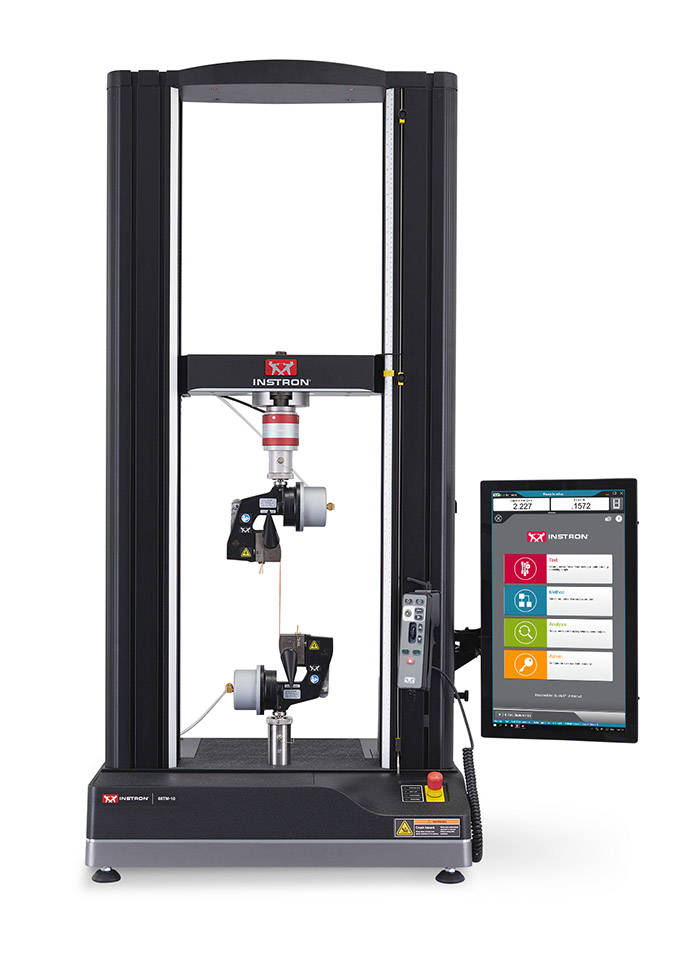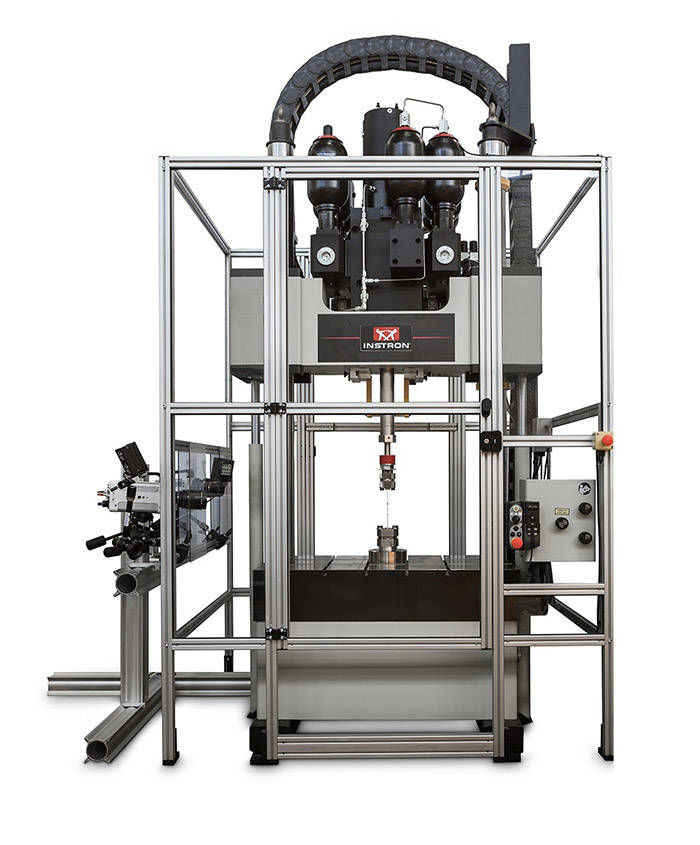Drop Tower Tensile Impact Testing for High Strain Rate Measurements
In recent years, CAE (Computer Aided Engineering) has been widely used to improve efficiency of product development processes. In addition, CAE allows to recognize in advance problems in design, enhancing product safety and reducing design efforts and costs by means of different kind of analysis.
In the evaluation of the elastic response of the material, most of the mechanical properties used for the analysis are obtained by means of quasi-static testers
Often this is not enough because a wide variety of polymeric materials involved in the product development have a sensitivity to strain rate. Testing at both quasi-static and impact velocities will give you a full picture of the properties the material exhibits.
When dealing with CAE simulations, a common practice allows the use of arbitrary coefficients to consider strain rate effects based on mechanical properties acquired by quasi-static test. Alternatively, high strain rate properties are obtained by using systems capable of high-test velocities.
The common way to reach moderate or high strain rates is to use servo-hydraulic testers. These testers - capable of moving at speeds up to 25 m/s - offer an integrated solution for a wide range of high strain rate testing requirements and can perform tests from quasi-static to dynamic fatigue to high strain rates, providing unparalleled coverage in material testing rates. However, servo-hydraulic testers may require significant infrastructure and maintenance.


Impact Drop Towers are a valid solution not only for damaging tests buy also for tensile tests at medium-high strain rates. In fact, the Drop Tower can reach a wide range of impact velocities from quite low 0.7 m/s to very high 22m/s and, playing with variable impact masses, it is possible to keep the test velocity as constant as possible during the elongation of the specimen.

With the combined use of a Drop Tower system equipped with Bluehill Impact Software, tensile-impact accessories, High Speed Camera and Digital Image Correlation software, it is possible to evaluate the longitudinal strain of the specimen when impacted under tensile-Impact conditions.

This solution supports the validation of the test at high strain rates from a qualitative point of view and then a direct evaluation of the mechanical properties without passing through the extrapolation process.
Watch the video of Instron 9450 Impact drop tower combined with tensile impact fixture, Photron High Speed Camera and GOM DIC.